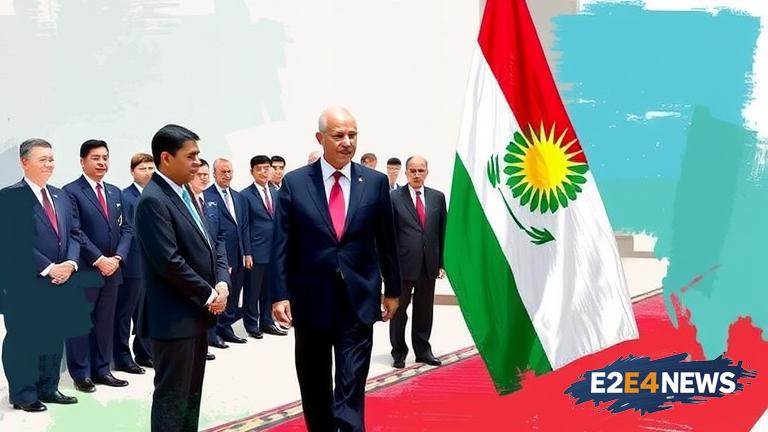In a bid to bolster trade and strategic cooperation, King Abdullah II of Jordan embarked on a visit to Uzbekistan and Kazakhstan, two Central Asian nations with which Jordan seeks to strengthen its economic and diplomatic ties. The visit, which took place in recent days, marked a significant milestone in Jordan’s efforts to diversify its economy and reduce its dependence on traditional trade partners. During his visit to Uzbekistan, King Abdullah II held talks with President Shavkat Mirziyoyev, focusing on ways to enhance bilateral cooperation in areas such as trade, investment, and tourism. The two leaders also discussed regional and international issues of mutual concern, including the situation in the Middle East and the fight against terrorism. In Kazakhstan, the King met with President Kassym-Jomart Tokayev, with whom he discussed opportunities for cooperation in the fields of energy, agriculture, and transportation. The visit to Kazakhstan also provided an opportunity for King Abdullah II to learn about the country’s experience in economic development and its efforts to attract foreign investment. Jordan’s trade with Uzbekistan and Kazakhstan is currently limited, but the visit is expected to pave the way for increased economic cooperation between the three countries. The King’s visit to Central Asia is also seen as part of Jordan’s efforts to strengthen its ties with the region and to promote itself as a hub for trade and investment. Jordan’s strategic location at the crossroads of Asia, Europe, and Africa makes it an attractive partner for countries seeking to expand their trade and economic ties with the Middle East and beyond. The visit to Uzbekistan and Kazakhstan is also significant in the context of Jordan’s relations with other countries in the region, including Turkey and Iran. Jordan has been seeking to strengthen its ties with Turkey in recent years, while its relations with Iran have been strained due to differences over regional issues. The King’s visit to Central Asia is also seen as an opportunity for Jordan to promote its role as a mediator in regional conflicts and to strengthen its position as a key player in regional affairs. In addition to its economic and diplomatic significance, the visit also highlights the cultural and historical ties between Jordan and the Central Asian nations. The two regions have a rich cultural heritage, with many historical and archaeological sites that attract tourists and scholars from around the world. The visit is also expected to promote people-to-people exchanges between Jordan and the Central Asian nations, including in the fields of education, culture, and tourism. Overall, the King’s visit to Uzbekistan and Kazakhstan marks an important milestone in Jordan’s efforts to strengthen its ties with Central Asia and to promote its role as a key player in regional affairs. The visit is expected to have a positive impact on Jordan’s economy and its relations with the region, and to pave the way for increased cooperation and collaboration in the years to come. The visit also underscores the importance of regional cooperation and the need for countries to work together to address common challenges and promote peace and stability. As Jordan continues to navigate the complexities of regional politics and economics, the visit to Uzbekistan and Kazakhstan is a significant step in the right direction. The country’s efforts to diversify its economy and strengthen its ties with the region are likely to pay off in the long run, and to position Jordan as a key player in regional affairs. In the coming months and years, it will be important for Jordan to follow up on the agreements and commitments made during the visit, and to work to implement the cooperation agreements signed with Uzbekistan and Kazakhstan. With its strategic location and rich cultural heritage, Jordan is well-placed to play a key role in promoting regional cooperation and understanding, and to serve as a bridge between the Middle East and Central Asia.
